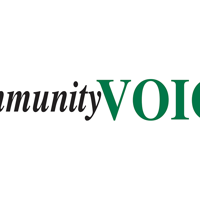
A loved one’s discharge from the hospital is a joyous occasion, but it could also be a stressful one if not prepared for his or her care needs. Consulting with their medical provider and understanding the discharge plan, medications and medical equipment, and level of care is critical for both their well-being and yours.
Ann was thrilled to learn her husband would soon be released from the hospital. But with her busy schedule working part time and caring for her grandchildren, she felt anxious and overwhelmed over the thought of him transitioning home.
How will care be provided for those activities that are not covered in his discharge instructions? Will someone need to be at home with my husband throughout the day or just at specific times during the day? Can I take care of him on my own?
Understand your role as caretaker
The following checklist may help you determine how much care might be warranted based on your loved one’s needs. As you go through the list, make a note of how much time it will take to accomplish the various tasks. And if you are considering outside caregiving help, the hospital will provide you with a list to guide you with options for home care in the event you are unfamiliar with those local in Sonoma County.
1. Patient restrictions and activities: Will your loved one be able take a bath or shower, lift heavy items, or walk upstairs? Can you leave him or her alone? Are you prepared to help your loved one with exercise instructions as well as train other family members to help?
2. Equipment and supplies: Make a list of items you will have to shop for and whether you will need to provide assistance or receive training in using these items. They might include a hospital bed, shower chair, oxygen supply, disposable gloves, or special skin care items.
3. Home safety: What changes are needed to help make your loved one’s home safe? Do you need to move out items that might cause a fall such as area rugs or electrical cords? Do you need to make room for a hospital bed and other large equipment? It’s important to also have a home safety checklist. You can call Home Instead, and we will share ours with you at no cost.
4. Health care tasks: What tasks will you have to perform, and will you need any special training to accomplish them? If you can, plan on receiving the training, such as wound care or taking and recording vital signs, while your loved one is still in the hospital.
5. Special diets: Will you need to purchase and prepare any special foods? For example: your loved one may be on a liquid diet for a period of time.
6. Medication management: Will you be able to monitor your family member to ensure he or she takes the correct medication at the right time in the right amount?
7. Follow-up care: Will you or another family member arrange for follow-up care and appointments? How often and where will they need to take place?
8. Medical expenses: As the primary caregiver you may have to manage your family member’s medical expenses including correspondence with the hospital, Medicare, and insurance companies.
9. Other financial issues: Are you prepared to manage your loved one’s finances, deposit retirement payments, balance his or her checking account and pay bills? There may be additional financial issues including taxes and home maintenance and repairs as well.
Create a plan of care
The plan of care should go hand-in-hand with the discharge plan. Family caregivers may find that their loved one will benefit from hiring an in-home senior care agency to help carry out that plan. If you’re working with an in-home care agency, be sure to discuss the above considerations with them as well. They’ll be able to assist in making sure your loved one’s care plan is complete and appropriately carried out.
The more information family caregivers can obtain on the current health care needs of their senior loved one, the easier it will be for them to develop, communicate and share a plan of care. There are many different caregiver situations that might arise, so having a plan of care will go a long way to help ensure that family members are well prepared for any situation.
Not sure where to begin- feeling a bit overwhelmed? You are not alone. This can be a very overwhelming time. Perhaps a care manager might be an option that best fits your family’s needs. Our friends Molly & Deanna at Legacy Concierge Services can help you navigate all the above mentioned with 40 years senior care experience. You can reach out to them directly at 707-732-4527 to schedule a Free 30 Minute Consultation.
Julie Ann Soukoulis is the owner of Home Instead Senior care office in Rohnert Park, mother of two and passionate about healthy living at all ages. Having cared for her own parents, and In-Laws, she understands your struggles and aims through her website, www.homeinstead.com/sonoma to educate and encourage seniors & caregivers. Have a caregiving or aging concern? Our team would love to hear from you at 586-1516 anytime. Call and ask for Mariclair or Daniella.
